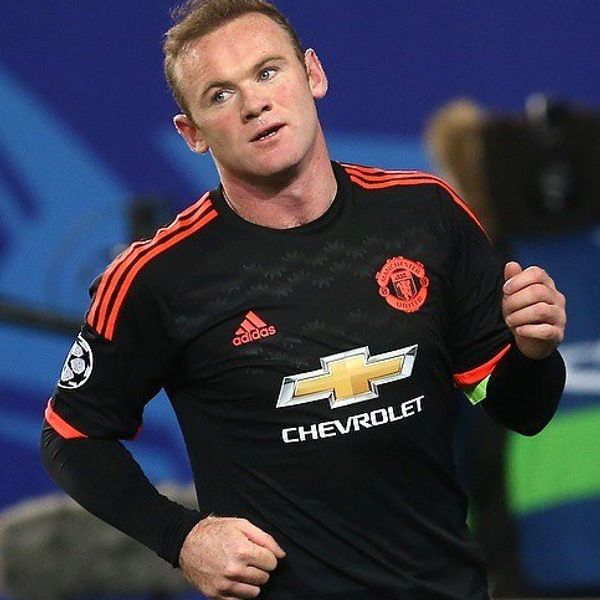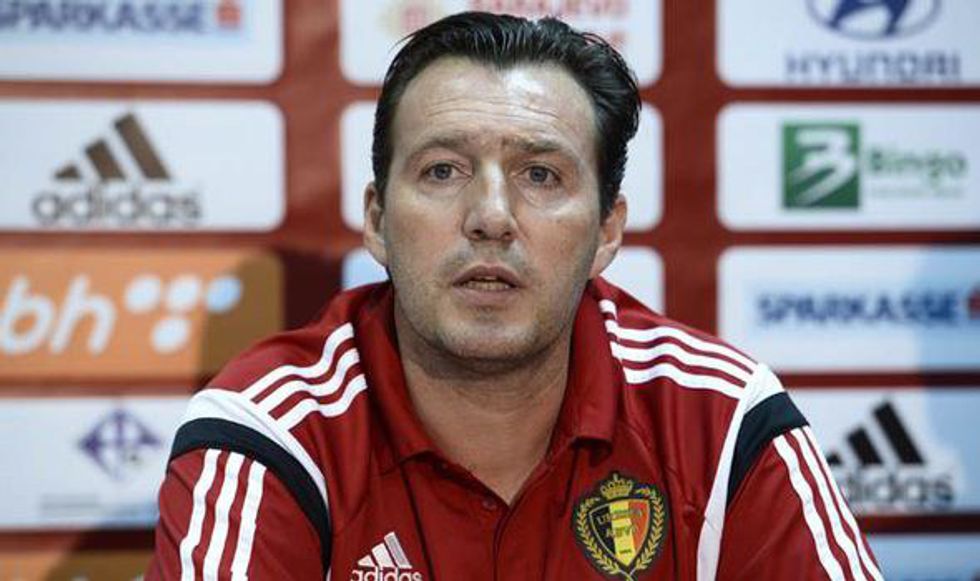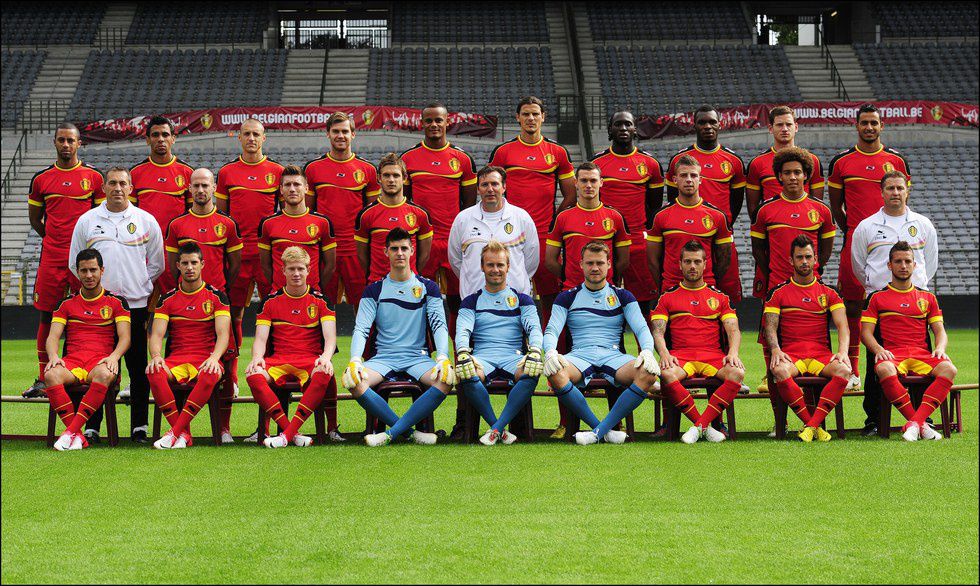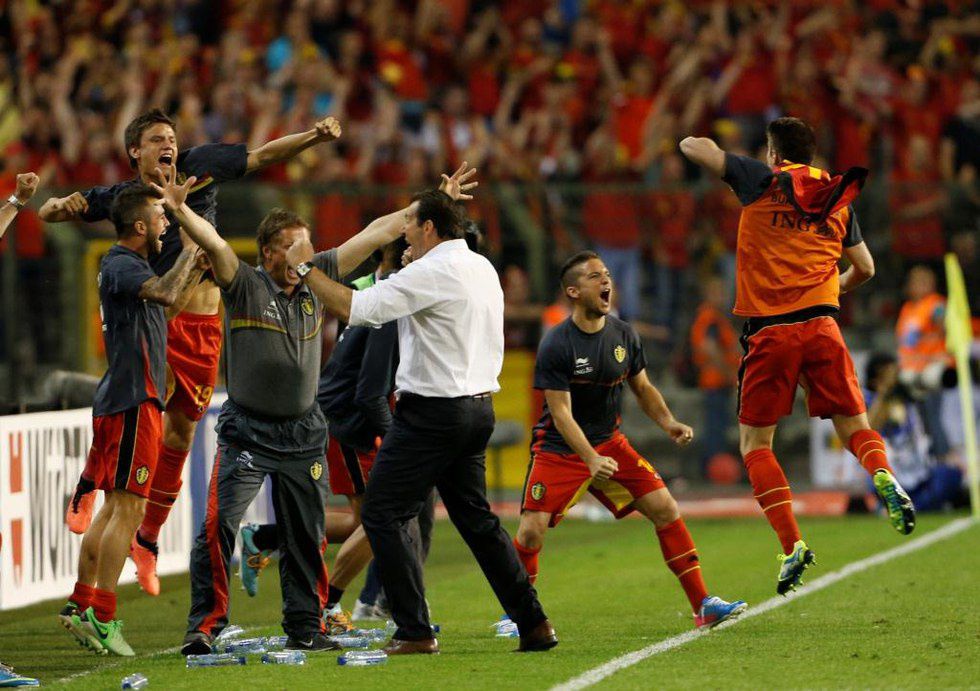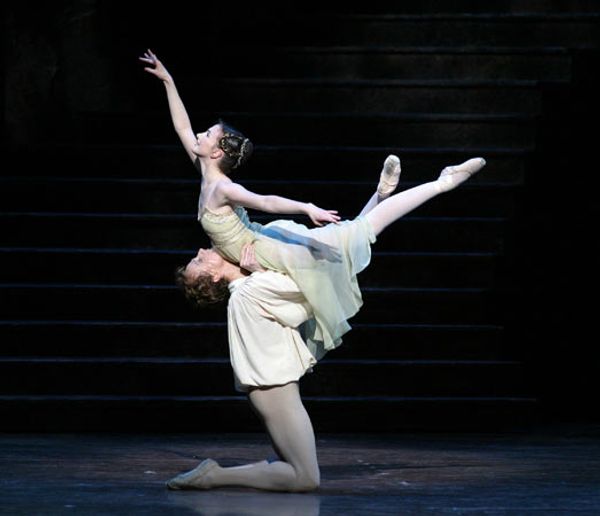When it comes to the exact origin of soccer there are different and contradictory sources of information. What we know for certain is that in Belgium the game was played as early as 1865 in English schools in Brussels. Nevertheless it took almost thirty years before the sport gained an official status in the country.
The Royal Belgian Football Association was founded on September 1 1895, and nine years later, on May 1 the Belgian National Team played its first official international against France on the Ganzevijver in Uccle (one of Brussels’ town); the final score was 3-3. The same year, the Association co-founded FIFA - the World Football Association - on May 21.
Belgium had their first victories at World and European Championship at the 1970 World Cup and Euro 1972. The 1980s and early 1990s are generally considered as Belgium's first golden age as the country achieved its spot in the 1980 final at Euro with an unbeaten record in the group phase. Starting with the 1982 World Cup, and ending with the 2002 World Cup, the national team qualified for six consecutive World Cup end stages and mostly progressed to the second round. The team proudly reached the semi-finals of the 1986 World Cup.
In June and July of 2000, Belgium and the Netherlands host the final stage of the Euro 2000. This was a first in soccer history as no two teams had jointly hosted a major tournament before. After the 2002 World Cup, the team weakened, and Belgium failed to qualify for five consecutive major finals from Euro 2004 until Euro 2012, and went through an equal number of head coaches. In between, a promising new generation (the team we know today) was maturing at the 2007 European U-21 Championship; Belgium's squad qualified for the following year's Olympics in Beijing, where the team finished fourth.
In 2011, the famous 1895 - official fan club of the Belgian Red Devils - is founded. Finally, in 2012, Georges Leekens resigns as national coach of the Belgian Red Devils and is replaced by Marc Wilmots (Belgium’s current national coach).
The young Belgian squad qualified as unbeaten group winners for the 2014 World Cup finals, at which they earned Belgium's second ever place in a World Cup quarter-final with a four-game winning streak. Belgium qualified for Euro 2016 with a match to spare in October 2015, and took the top spot in the FiFA World Rankings for the first time in November 2015, to stay first for five months.
The team that we have all got to know and like is a really young team, as the average age of the player is 25 years old. They don’t have the experience of bigger teams like Spain or Italy or even Germany who are teams that we all know to have won big championships like World Cup and Euros many many times. What people usually don’t know is that as of May 2016, France has played most often against Belgium in international football and Belgium have the better record, with 30 wins to France's 24.
The question that remains is how did Belgium acquire such a good team? It seems as if one day they were nowhere to be found in the international ranking and in the blink of an eye they were all the way on the top of the charts. The main reason is that most of Belgium’s top players did not evolve in Belgium, as soon as they were detected as “young talent”, they were sent to other countries that benefit from bigger clubs and athletic structure. For example, one of Belgium’s most famous players Eden Hazard evolved in a small club in Belgium before leaving for Lille in France and then joined the famous club of Chelsea, England. Belgium’s current squad counts 11 players evolving in the English championship, 2 in the Spanish championship, 2 in the Italian championship, 1 in Turkey, 1 in Canada, 1 in Russia, 1 in France and 4 in Belgium. Most of the players compete against each other in UEFA Champions League and Premier League, Liga, and Serie A that allow them to know each other’s game and then be able to create the team they have today and create the effect they have on the world of Soccer.
As the Euro 2016 is underway we now know for sure that Belgium is qualified for the sweet 16 round. We just have to sit back, watch and enjoy the show the Belgian Red Devils are going to give us in the remaining of the tournament.

